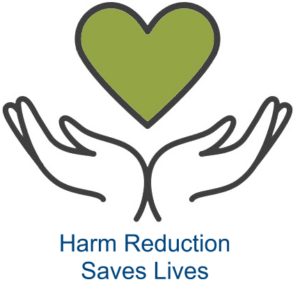Harm reduction is a set of practical strategies and ideas aimed at reducing negative consequences associated with drug use. Harm reduction is also a movement for social justice built on a belief in, and respect for, the rights of people who use drugs. Harm reduction does not require abstinence from any risky behaviors.
Source: National Harm Reduction Coalition, Retrieved from https://harmreduction.org/
One Page Information Sheet
The PTTC has created this one-page information sheet for Prevention practitioners. It provides a brief overview of Harm Reduction and its connection with Prevention. It also includes basic Harm Reduction strategies for commonly used substances and viral infections that are a heightened risk for people who use substances.
SAMHSA Brown Bag:
Harm Reduction Strategies through the
Lens of Selective and Indicated Prevention
The PTTC NCO hosted a one-hour webinar to explore Harm Reduction strategies through the lens of Selective and Indicated Prevention. On this page, you will find a number of resources from the webinar, including the session recording, slides, and other recommended resources from the presenters and participants.
Presenters’ Organization Websites
National Harm Reduction Coalition creates spaces for dialogue and action that help heal the harms caused by racialized drug policies.
Their mission is to promote the health and dignity of individuals and communities affected by drug use. As a national advocacy and capacity-building organization, they aim to shift power and resources to people most vulnerable to structural violence and racialized drug policies.
NASTAD is a leading non-partisan non-profit association that represents public health officials who administer HIV and hepatitis programs in the U.S. Our singular mission is to end the intersecting epidemics of HIV, viral hepatitis, and related conditions. We do this work by strengthening governmental public health through advocacy, capacity building, and social justice.
NASTAD’s mission is to advance the health and dignity of people living with and impacted by HIV/AIDS, viral hepatitis, and intersecting epidemics by strengthening governmental public health and leveraging community partnerships.
The Prevention Research Center is a multi-disciplinary team of scientists who work to understand the large systems and specific contexts that affect health behaviors, especially the consumption of alcohol, tobacco, and other drugs.
Additional Resources
Undoing Drugs tells the untold tale of a quirky political movement that has unexpectedly shaken the foundations of world drug policy. It illustrates how hard it can be to take on widely accepted conventional thinking—and what is necessary to overcome this resistance. Ultimately, Undoing Drugs offers a path forward—led by characters who spent many years being dismissed as worthless, only to develop a breakthrough philosophy that can dramatically improve world health.
Harm reduction strategies and tools should be accessible to everyone – regardless of location, time, and or experience. National Harm Reduction Coalition offers a series of self-paced online learning modules that groups and individuals can complete on their own schedule and terms – anytime, anywhere.
This technical package provides evidence of the effectiveness of strategies and approaches for supporting the successful planning, design, implementation, and sustainability of syringe services programs (SSPs).
What if everything you think you know about addiction is wrong? Johann Hari’s journey into the heart of the war on drugs led him to ask this question—and to write the book that gave rise to his viral TED talk, viewed more than 62 million times, and inspired the feature film The United States vs. Billie Holiday and the documentary series The Fix.
The Naloxone Finder is intended for people who use drugs to access naloxone in their community. While many of the programs listed offer additional harm reduction supplies (e.g. syringes, safer smoking kits, drop-in centers), NHRC has vetted the programs for community-based naloxone that is free and intended for people who use drugs.
This CDC resource outlines how syringe service programs (SSPs) are proven and effective community-based prevention programs that are safe, effective, and cost-saving. They do not increase illegal drug use or crime and play an important role in reducing the transmission of viral hepatitis, HIV, and other infections.
Rapper 2 Chainz celebrated his 44th birthday in September. While 2 Chainz had a number of substances at his party, fentanyl was banned in a move to protect those attending the party.
This guide provides insight into what “overdosing” or “overamping” on stimulants looks like, how to prevent it, and how to respond if someone does overamp.
This is a resource for individuals/organizations interested in learning how to start a harm reduction program. It contains guidance documents, toolkits, and factsheets.
